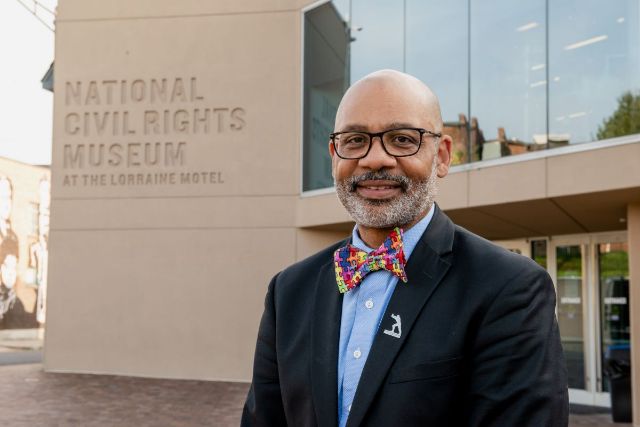The right to vote is the cornerstone of democracy, but the struggle to secure it for all Americans has been a long and arduous fight.
Dr. Martin Luther King Jr. once said, “So long as I do not firmly and irrevocably possess the right to vote, I do not possess myself.”
These words remain crucial today as voter suppression tactics continue to threaten access to the ballot, particularly for marginalized communities.
The 2020 election saw a historic voter turnout — 66.8%, the highest in over a century — with more than 159 million Americans casting ballots, despite challenges from a global pandemic and renewed voter suppression efforts. Yet over 80 million eligible Americans did not vote. This is alarming in a democracy that relies on active participation.
In 2013, the Supreme Court’s decision in Shelby County v. Holder weakened the Voting Rights Act, leading to a wave of voter suppression laws. At least 19 states, including Tennessee, passed voter ID laws and limited access to mail-in voting between 2020 and 2021 that made voting more difficult, particularly affecting marginalized and young people.
Still, there are viable solutions to increase voter turnout both nationally and locally.
Here are ideas to making voting more accessible in Tennessee
- Nationwide implementation of Automatic Voter Registration (AVR), where eligible citizens are automatically registered unless they opt out, would bring millions of new voters into the system. It simplifies the process, ensuring more people stay registered as they move or change addresses. A national vote-by-mail system would make voting more accessible for those unable to visit polling stations. The 2020 election proved that mail-in voting increases turnout, especially among young and marginalized voters.
- Allowing same-day voter registration helps remove the barrier of missing registration deadlines. This is especially crucial for young and first-time voters, ensuring they can vote even if they weren’t previously registered. Expanding early voting periods and extending poll hours is a significant step in making voting more accessible. It also reduces long lines on Election Day, which can deter potential voters.
- Combatting state-level voter suppression by restoring the Voting Rights Act’s pre-clearance provision would prevent discriminatory state laws aimed at voter suppression. This safeguard is crucial to ensuring equal access to the ballot, particularly for marginalized communities. Making Election Day a national holiday would eliminate a major barrier for Americans who can’t afford to take time off to vote.
- Locally, embedding civic education in schools can foster a lifelong habit of voting. When young people understand how government works and how their vote impacts policies, they’re more likely to participate in elections. Local governments and organizations should create programs targeting young voters, including voter registration drives and outreach through social media. Grassroots efforts like door-to-door campaigns and voter logistical support are critical in reaching underrepresented voters.
By not voting, citizens allow decisions to be made for them by others who may not share their priorities. We must recognize the power of our vote and the influence it can have on the direction of our society.
The vote is not only about choosing candidates; it’s about shaping the future.
As a nonpartisan, history museum, the National Civil Rights Museum illuminates the sacrificial struggle many everyday people fought to preserve voting rights for all.
The Museum partners with organizations whose mission is to increase civic engagement so there is fair representation and the people’s voices are heard. Every vote counts, every voice matters, and we must ensure that all Americans — especially young and marginalized people — are fully engaged in the democratic process.
As published in The Tennessean, October 15, 2024, 10:26 am CT
Dr. Russ Wigginton voter suppression OpEd vote voting rights


